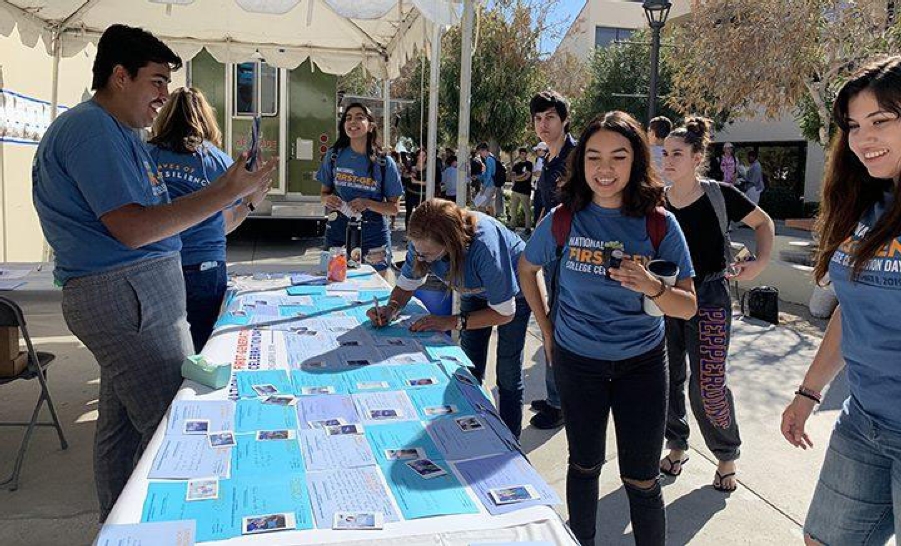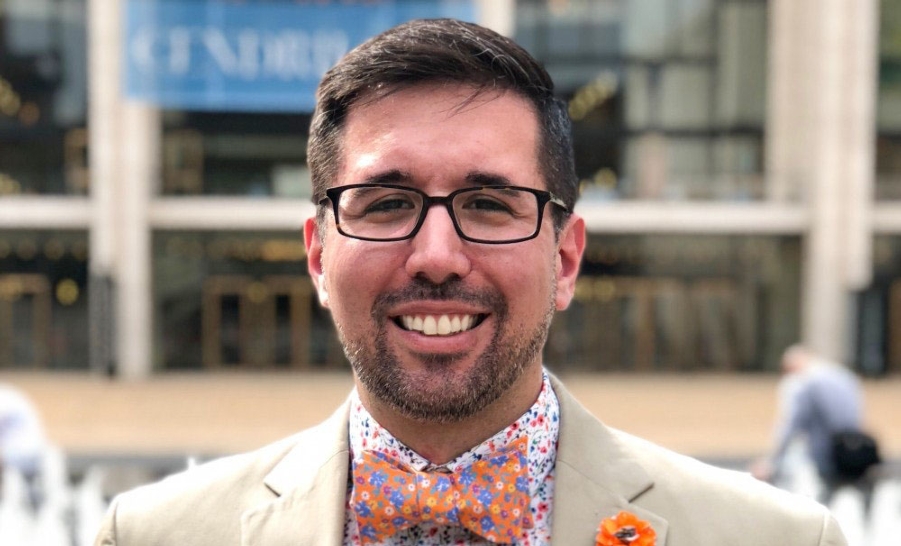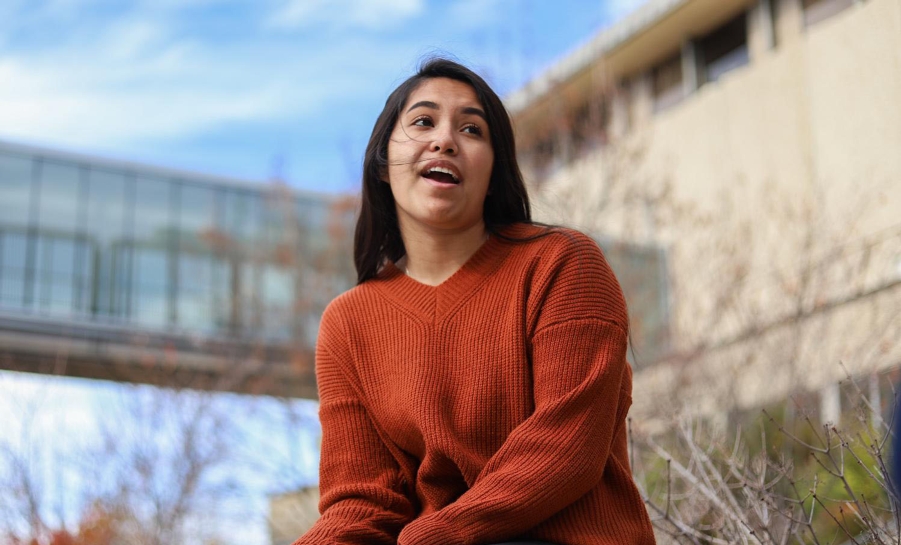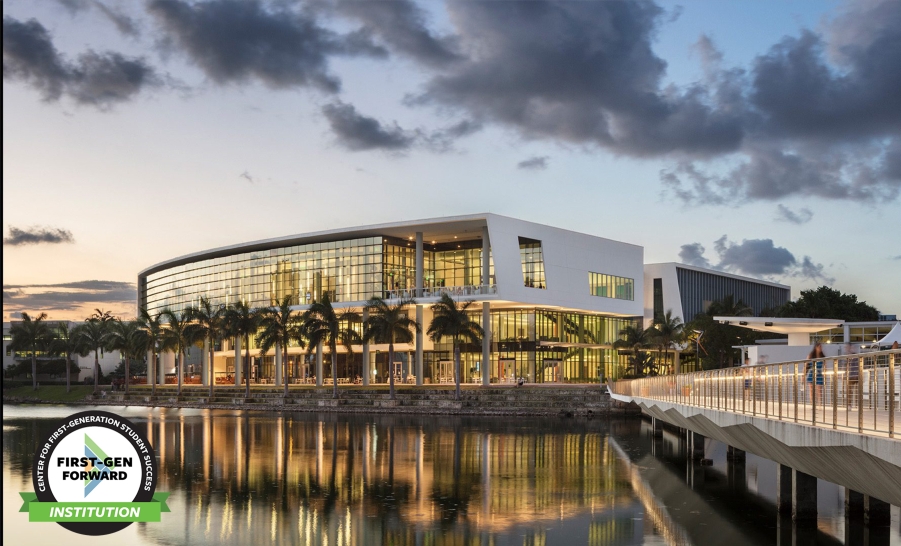Bruin Brains–Meaningful Mentorship
Tanasia Valdez, M.Ed., Salt Lake Community College / FirstGen Forward / September 02, 2020
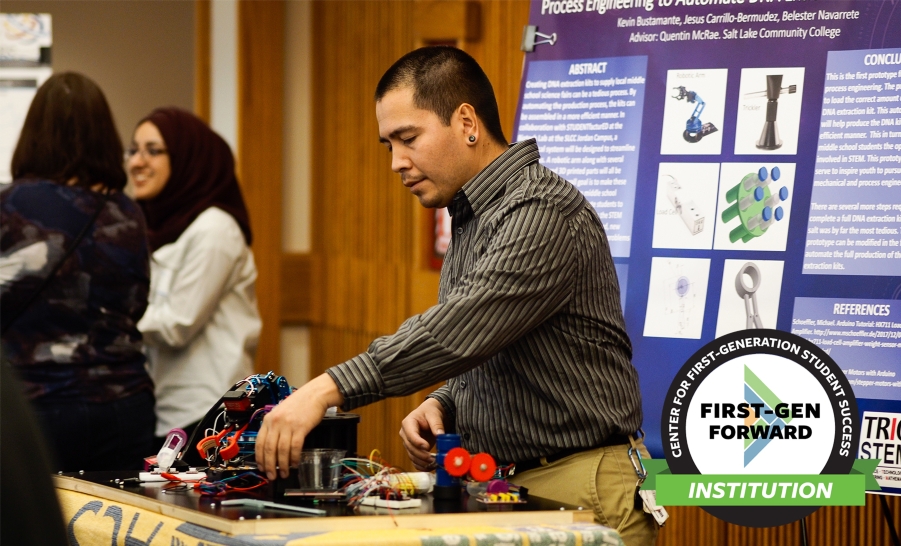
On December 4th, TRIO Programs at Salt Lake Community College (SLCC) hosted the fifth successful Bruin Brains Research Conference! Although undergraduate research hasn’t been something the community college is commonly known for, the Bruin Brains Research Conference is becoming a tradition for many first-generation college students.
In 2016, the Bruin Brains Research Conference (referred to simply as Bruin Brains) started as a student-driven research conference that focused on inclusion and diversity in research. TRIO STEM students were apprehensive to present at the SLCC Science Math and Engineering (SME) symposium because of their limited experience. Students wanted an appreciative yet critical space to prepare their projects. Faculty feedback on posters/presentations, a central component to this event, was a key feature that students desired at the event. A guest speaker who focused on diversity in STEM research was also a specific component on the event.
Since then, it’s expanded to include non-STEM student research, and its mission is no longer to solely drive students to the SME symposium. Bruin Brains now also serves as a standalone undergraduate research opportunity for students to participate in, at no cost to them. Bruin Brains Research Conference is considered an interdisciplinary research conference with an emphasis on diversity and inclusion. Bruin Brains is largely funded by Arts and Cultural Events awards, an institutional grant that first-generation TRIO students apply for each year to continue the event.
The growth and continued participation in Bruin Brains is a testament to the spirit and energy of first-generation college students.
As Bruin Brains continues to expand, so does the support that first-generation students receive through faculty mentorship on their research projects. The Bruin Brains Collaboration Committee was formed early Spring 2020 and is a cross-institution collaboration that includes faculty and staff. The purpose of this committee is specifically focusing on student support and referrals for mentorship. In a combined effort, faculty and TRIO staff worked together to develop a Canvas site catered to training faculty who expressed interest in building research opportunities into their syllabi and supporting first-generation and community college students.
This year, the Coronavirus pandemic provided an opportunity to host Bruin Brains virtually. The conference had robust participation, despite such a difficult year. Students presented their research and keynote speakers gave their address in a virtual format. This year’s speakers focused on community-based participatory research, a feminist framework that seeks to include community members in development of research questions and topics.
The growth and continued participation in Bruin Brains is a testament to the spirit and energy of first-generation college students. As a student affairs professional, my job can get heavy at times, but each year I’m inspired and reinvigorated by the students who present at Bruin Brains.
For more information on Salt Lake Community College’s approach, please visit their website here.
